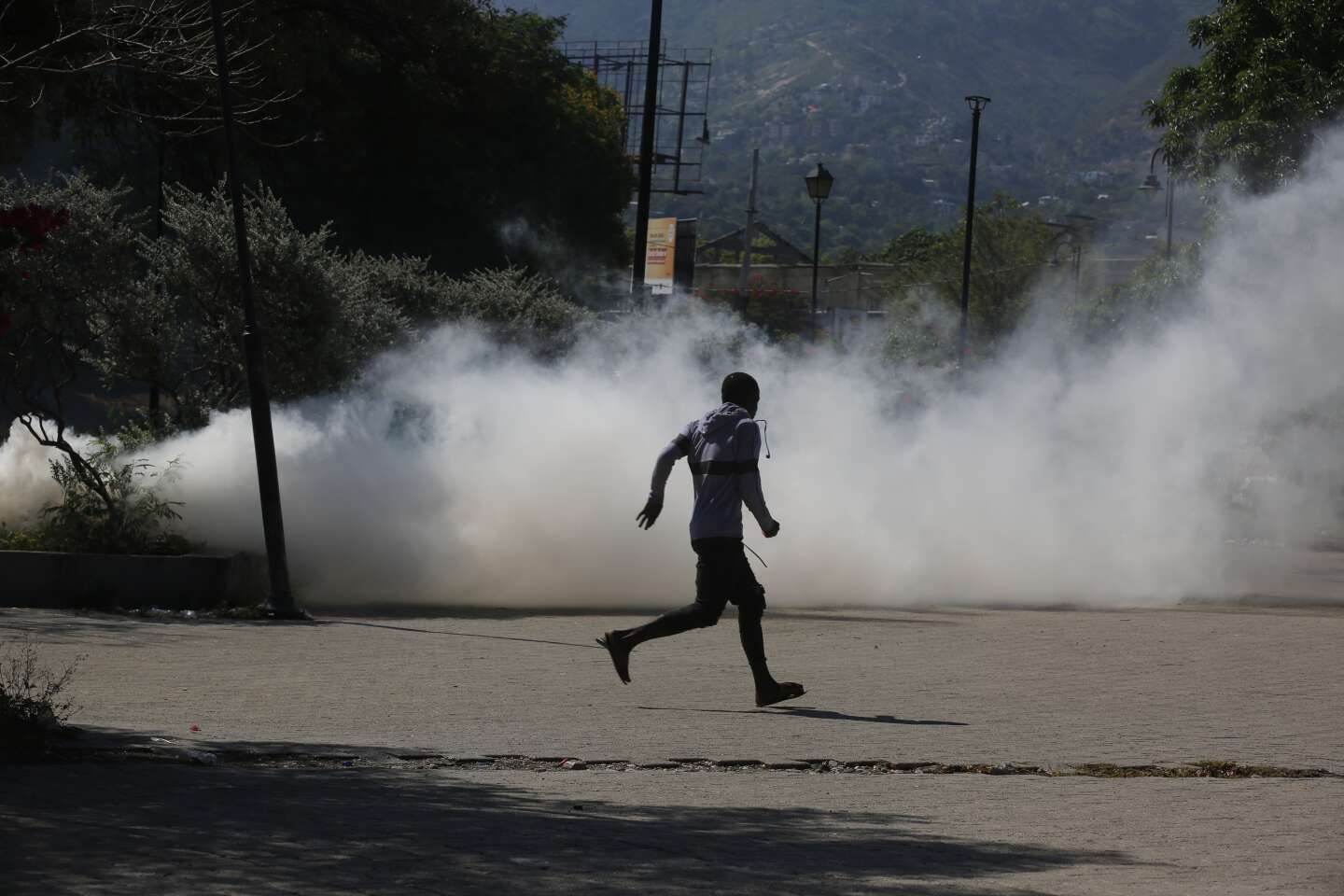The threat is chilling: “Until we are invited to the negotiating table, this country will not know peace.” The “we” referred to by gang leader Jimmy Chérizier in an interview with journalist Stuart Ramsay, broadcast on Friday, March 29 by the British TV channel Sky News, refers to Viv Ansanm (“vivre ensemble,” in Haitian Creole), a coalition of armed groups among those that have terrorized Haiti for several years. Chérizier is one of the leaders of this alliance of criminal gangs, which joined forces at the end of February to oust Haitian Prime Minister Ariel Henry from power. The re-emergence of the coalition immediately led to an increase in violence and chaos in the Caribbean country of over 11 million inhabitants.
A seasoned war reporter, Stuart Ramsay went to Port-au-Prince, the Haitian capital, 80% of which is controlled by violent gangs. Flanked by hooded men armed with machine guns, the gang leader, who calls himself “Barbecue,” explained his politics.
“We’ve always called for dialogue,” he said. Chérizier is a former policeman turned revolutionary leader. In the interview, he criticized the “indecent” inequalities in Haiti and accused his country’s politicians of “perpetuating the current system, which is on its last legs.”
In Chérizier’s eyes, the Viv Ansanm coalition has a rightful place in the Transitional Presidential Council, the collegiate governance body laboriously installed at the head of the country after the unpopular prime minister’s resignation. Its inclusion would put Haiti “back on the path to democratic legitimacy,” according to the coalition’s March 27 press release. Barbecue’s objective is “to be part of the solution” to get the country out of its profound security, political, economic and humanitarian crisis, which he himself has largely contributed to worsening. “We can envisage any solution, as long as the Haitian people have their say,” insisted the gang leader. “We’re ready to negotiate with everyone, because we’re not proud of what’s happening in the country.”
Changing dynamics
His Robin Hood-style rhetoric echoes much of what Viv Ansanm’s spokesperson says on social media, where he is very active. His comments highlight the shift in dynamics that has taken place between the corrupt Haitian elites and the armed gangs they helped create over the last few decades to consolidate their power.
The links between Haitian political leaders and gangs are well known. In its final report dated September 15, 2023, the group of experts created in 2022 by UN resolution 2653 bluntly accused former Haitian president Michel Martelly (2011-2016) and former Senate president Youri Latortue (2017-2018) of having actively contributed to the proliferation of armed gangs. The former president, who lives in the US, “used gangs to extend his influence in neighborhoods in order to advance his political agenda,” wrote the UN emissaries. As a result, the territories currently controlled by the most powerful armed groups “are, in most cases, areas without which it is impossible to win elections,” explained Jeffsky Poincy, a specialist in governance and public policy, and member of the Nou Pap Domi (“We Don’t Sleep”) collective.
You have 40.09% of this article left to read. The rest is for subscribers only.
Crédito: Link de origem





Comentários estão fechados.